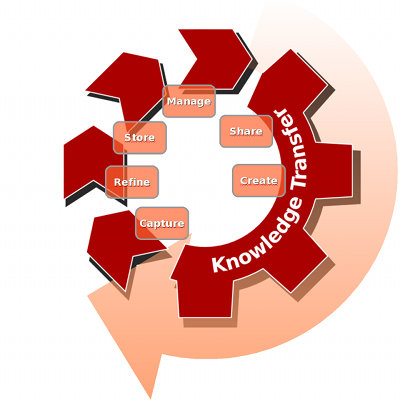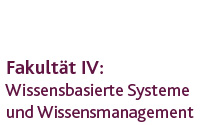Knowledge Management Center
The Knowledge Management Center (KMC) is located at the University of Siegen, Germany. It has been established as a competence center for practical research and teachings in the field of knowledge management and intelligent systems.
We are investigating how methods of knowledge management and artificial intelligence can support organizational processes in different application areas. We are working closely with cooperation partners from industry and other universities and have a strong international background.
We are still in our
build-up phase and are always seeking for new cooperation
partners around the world. So do not hesitate to contact
us.
Knowledge Management
It is difficult to find a unique definition of what Knowledge Management (KM) exactly is.
For us Knowledge Management is about the optimal use of the most important resource of companies and organizations - knowledge. Shortly described, knowledge is actionable information.
There are different approaches existing for an optimal management of knowledge which differ in the perspective which is taken on KM:
- Technological. The focus is placed on technologies which can support KM processes. Examples are Knowledge Portals or Knowledge Databases.
- Organizational. This is about analysis of organizational processes and how they have to be adapted for an optimal flow of knowledge.
- Personal. Approaches in this field are concentrating on people, for example on knowledge sharing through interaction between people.

Intelligent Systems
We see Intelligent Systems as part of science of artificial intelligence. The basic constituents of Intelligent Systems are machine learning, autonomous systems and computational intelligence, with the latter subsuming fuzzy logic, neural networks and evolutionary algorithms. Our research work provide results in theory and applications of systems, that perceive, learn, reason and act intelligently in different fields like knowledge engineering, finance, manufacturing, medicine and logistic. In conjunction with Knowledge Management distributed and hybrid systems with decision components are developed to aggregate, fusion and discover knowledge.

